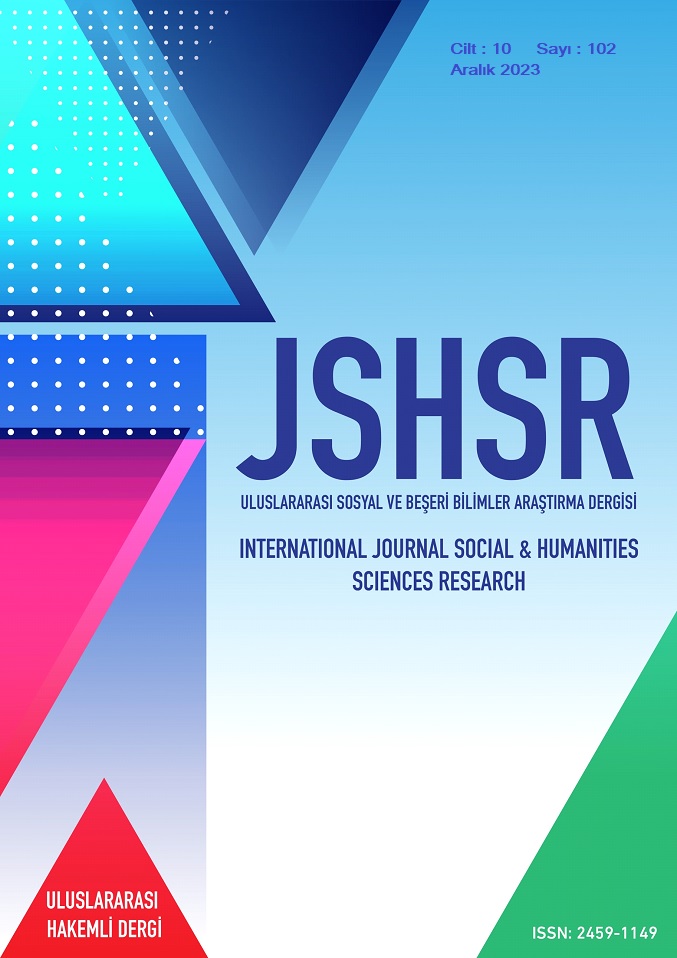“The Migrant” As a Political Subject In Friedrich Nietzsche’s Philosophy
DOI:
https://doi.org/10.5281/zenodo.10431434Keywords:
Nietzsche, Migration, Labour Problems, Racism, Europe, Social TransformationAbstract
The German philosopher Friedrich Nietzsche offers a profound perspective on labour problems and their solutions in his work Daybreak. Nietzsche criticises slave labour and the devaluation of workers. And he states that the best life for them is possible through migration. The main aim of this migration is not only to get rid of slavery, but also the will of the workers to become their own masters. Nietzsche's proposal is opposed to the domination of "last man" socialism. It is also diametrically opposed to capitalism. For he emphasises the potential of the individual to be his own master, rather than people living a life based on wealth. It proposes that the alienation of those condemned to a life of slavery from their own existence can only be achieved through migration. This migration would be a breath of fresh air that would unleash the potential of workers and free them from slavery. According to Nietzsche, this migration would be part of a transformation that would bring old Europe to its senses, encourage the formation of a new nation and reduce racism.
In this framework, it is seen that the positive elements that Nietzsche sees in the change that migration will bring are the main elements of the change and transformation within Europe itself. The idea that migration has the potential to create a new nation against the sterilising effects of the nation-state idea in Europe and that hybridisation in this process can reduce racism reflects a radical perspective that Nietzsche brought to the political and social issues of his time.
References
Agamben, G. (2012). Biz Mülteciler. Çev. Emre Koyuncu. https://isyananarsi.blogspot.com/2012/02/biz-multeciler.html
Agamben, G. (2000). Means without End Notes on Politics. Trans. Vincenzo Binetti and Cesare Casarino. University of Minnesota Press.
Arendt, H. (1968). Man in Dark Times, A Harvest Book.
Arendt, H. (1996). We Refugees. Marc Robinson (Ed.), Altogether Elsewhere: Writers on Exile içinde. Faber and Faber Press.
Brown, W. (2023). Nihilistic Times, Harvard University Press.
Di Cesare, D. (2019). Göçmenlere Karşı Ulus Devlet, Sabah Ülkesi Dergisi, sayı 59. https://www.sabahulkesi.com/2019/05/19/goecmenlere-karsi-ulus-devlet/
Holub, R.C. (1998). Nietzsche’s Colonialist Imagination: Nueva Germania, Good Europeanism, and Great Politics. Sara Friedrichsmeyer (Ed.), The Imperialist Imagination German Colonialism and Its Legacy içinde. The University of Mıchigan Press.
Nail, T. (2018). The Political Centrality of the Migrant. Marianna Karakoulaki, Laura Southgate and Jakob Steiner (Ed.), Critical Perspectives on Migration in the Twenty-First Century içinde. E-International Relations. https://www.e-ir.info/2018/08/17/the-political-centrality-of-the-migrant/
Nietzsche, F. (2003). Şen Bilim. Çev. Levent Özşar. Asa Kitabevi.
Nietzsche, F. (2014). Tan Kızıllığı. Çev. Hüseyin Salihoğlu ve Ümit Özdağ. İmge Kitabevi.
Nietzsche, F. (2013). İnsanca Pek İnsanca- I. Çev. Mustafa Tüzel. İş Bankası Kültür Yayınları.
Downloads
Published
How to Cite
Issue
Section
License
Copyright (c) 2023 INTERNATIONAL JOURNAL OF SOCIAL HUMANITIES SCIENCES RESEARCH

This work is licensed under a Creative Commons Attribution 4.0 International License.


